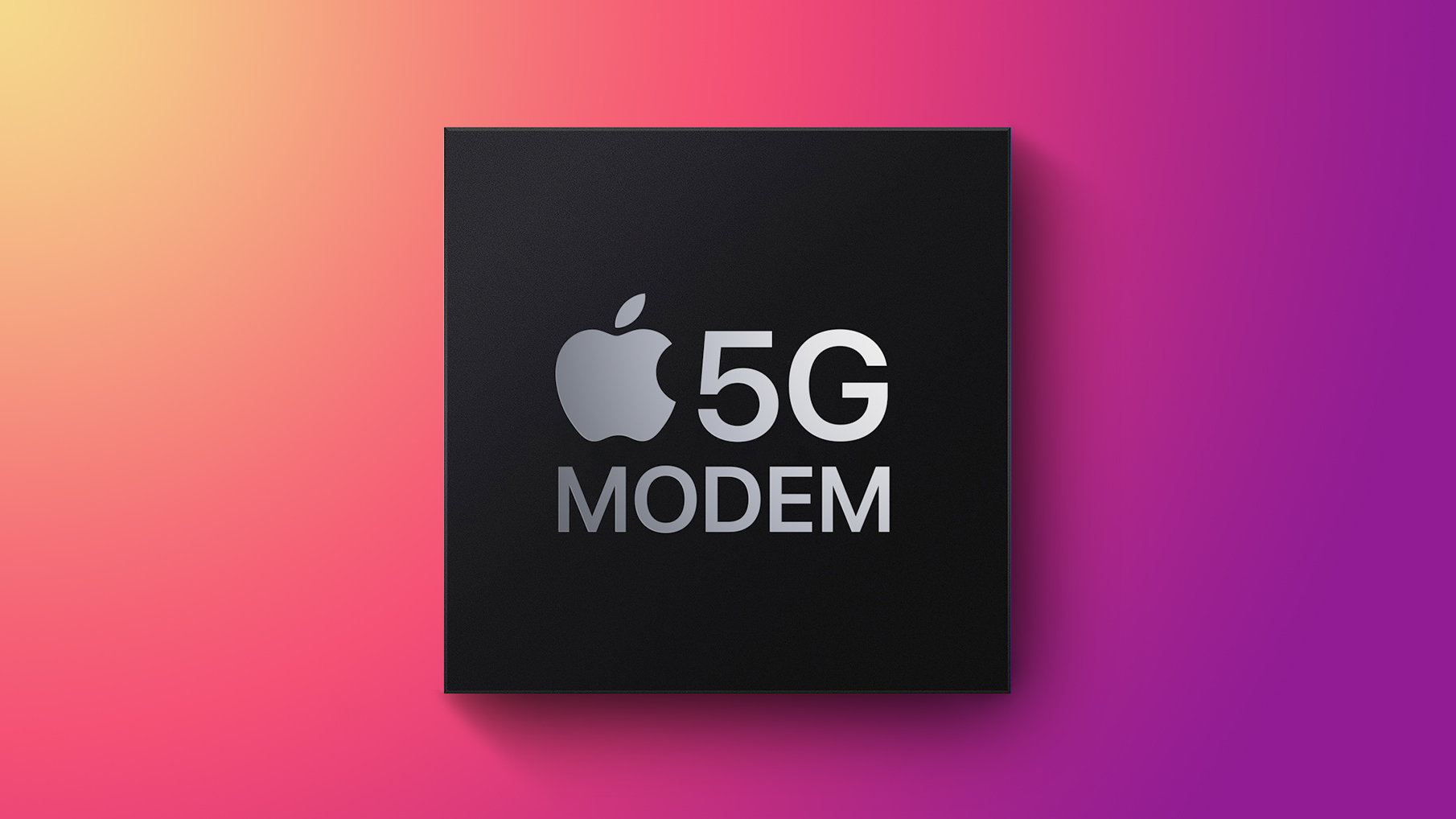Apple is discontinuing in-house modem development after several unsuccessful attempts to perfect its own custom 5G modem chip, according to unconfirmed reports coming out of Asia.

According to the operator of news aggregator account "yeux1122" on the Naver blog, supply chain sources related to Apple's 5G modem departments claim that the company's attempts to develop its own modem have failed so far, and that Apple is in the process of ending its years-long investment in the project. Separately, the leaker known as @Tech_Reve today said they had heard similar reports from a Japanese supply chain source.
It's too early to say if the latest reports are true, but according to a September Wall Street Journal report, Apple's attempts to develop its own modem chip have been hampered by issues including unrealistic goals, an inadequate understanding of the challenges involved, and unusable prototypes.
Apple's plan to design its own in-house modem led to the hiring of thousands of engineers: Apple acquired the majority of Intel's smartphone modem business in 2019, and as it filled the project's ranks with Intel engineers and others hired from Qualcomm, company executives set a goal to have the modem chip ready for fall 2023.
Earlier this month, Bloomberg's Mark Gurman reported that Apple was continuing to run into troubles in its attempt to develop a 5G modem to replace Qualcomm's 5G modems in the iPhone and other products.
Development on a modem chip was said to be in the early stages, and it "may lag behind the competition by years." One version in development does not support faster mmWave technology, and Apple has also run into issues with the Intel code that it has been working with. Rewrites have been required, and adding new features has been causing existing features to break, plus Apple has to be careful not to infringe on Qualcomm patents while developing the chip.
Despite delays, the company was thought to be continuing development because it is eager to end its expensive deal with Qualcomm. Apple's first modem chip was expected to be a standalone chip, but the company hoped to eventually develop a system-on-a-chip that would also cut out suppliers like Broadcom and give it more control over component development.
This article, "Apple to Discontinue Custom 5G Modem Development, Claim Reports" first appeared on MacRumors.com
Discuss this article in our forums
Source: TechRadar

According to the operator of news aggregator account "yeux1122" on the Naver blog, supply chain sources related to Apple's 5G modem departments claim that the company's attempts to develop its own modem have failed so far, and that Apple is in the process of ending its years-long investment in the project. Separately, the leaker known as @Tech_Reve today said they had heard similar reports from a Japanese supply chain source.
It's too early to say if the latest reports are true, but according to a September Wall Street Journal report, Apple's attempts to develop its own modem chip have been hampered by issues including unrealistic goals, an inadequate understanding of the challenges involved, and unusable prototypes.
Apple's plan to design its own in-house modem led to the hiring of thousands of engineers: Apple acquired the majority of Intel's smartphone modem business in 2019, and as it filled the project's ranks with Intel engineers and others hired from Qualcomm, company executives set a goal to have the modem chip ready for fall 2023.
Earlier this month, Bloomberg's Mark Gurman reported that Apple was continuing to run into troubles in its attempt to develop a 5G modem to replace Qualcomm's 5G modems in the iPhone and other products.
Development on a modem chip was said to be in the early stages, and it "may lag behind the competition by years." One version in development does not support faster mmWave technology, and Apple has also run into issues with the Intel code that it has been working with. Rewrites have been required, and adding new features has been causing existing features to break, plus Apple has to be careful not to infringe on Qualcomm patents while developing the chip.
Despite delays, the company was thought to be continuing development because it is eager to end its expensive deal with Qualcomm. Apple's first modem chip was expected to be a standalone chip, but the company hoped to eventually develop a system-on-a-chip that would also cut out suppliers like Broadcom and give it more control over component development.
Tag: Apple 5G Modem
This article, "Apple to Discontinue Custom 5G Modem Development, Claim Reports" first appeared on MacRumors.com
Discuss this article in our forums
Source: TechRadar